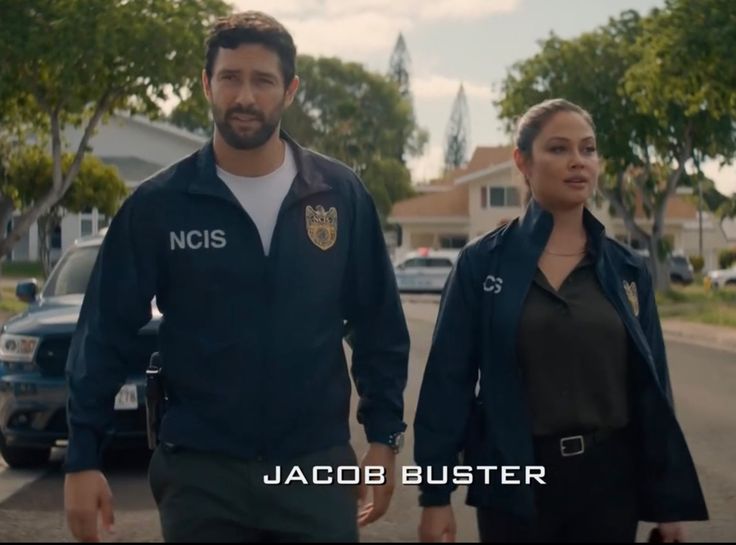
For over twenty years, Hawaii wasn’t just a vacation destination — it was a television powerhouse, home to some of the most visually stunning and culturally rich shows ever made. But in 2024, everything changed. With CBS canceling NCIS: Hawai’i and shelving Rescue HI-Surf after just one season, the island suddenly found itself without a single TV production for the first time in decades. So, what really happened? Why did CBS walk away from paradise? And what does this mean for Hawaii’s entertainment industry? Let’s dive deep into this story of endings, disappointments, and what could still rise from the ashes.
The Golden Era of Hawaii-Based TV Shows
From “Hawaii Five-0” to “NCIS: Hawai’i”
For years, Hawaii served as the perfect backdrop for CBS’s hit procedural dramas. Hawaii Five-0 dominated the airwaves from 2010 to 2020, blending action, local culture, and breathtaking scenery. When that show ended, NCIS: Hawai’i seamlessly carried the torch, debuting in 2021 with Vanessa Lachey as Special Agent Jane Tennant — the first female lead in the NCIS franchise.
A New Hope with “Rescue HI-Surf”
CBS had high hopes for Rescue HI-Surf, a beachside drama following heroic lifeguards on Oahu’s North Shore. But despite its beautiful cinematography and strong cast, the show couldn’t find its audience. Ratings were underwhelming, and the network pulled the plug after just one season.
Why CBS Canceled NCIS: Hawai’i — The Inside Story
Declining Ratings and Costly Production
While NCIS: Hawai’i had a dedicated fanbase, its ratings began to slip in Season 3. Production in Hawaii also came with massive expenses — higher costs for crew, equipment, and logistics compared to mainland shoots. CBS reportedly considered relocating, but it didn’t align with the show’s identity.
Scheduling Conflicts and Network Restructuring
CBS faced a tough post-strike TV landscape. The network trimmed several shows to make space for new pilots and streaming priorities. Unfortunately, NCIS: Hawai’i landed on the wrong side of that decision.
Insiders claim CBS wanted to refresh its procedural lineup, focusing resources on flagship shows like NCIS (the mothership) and the upcoming NCIS: Origins spinoff.
The Fallout: Hawaii’s Production Industry in Crisis
Over 500 Jobs Lost Overnight
The end of NCIS: Hawai’i and Rescue HI-Surf wasn’t just about two shows — it represented hundreds of local jobs. From crew members to caterers, the cancellations left a huge economic void.
Hawaii’s film industry has long relied on steady network shows to sustain its infrastructure. With both series gone, workers are being forced to look for opportunities on the mainland or in streaming productions abroad.
Economic Ripples Across the Islands
Local businesses that thrived off these productions — restaurants, rental companies, hotels, and transport services — also took a hit. The island’s entertainment ecosystem, which once buzzed with excitement, suddenly fell silent.
Fans Outraged by CBS’s Decision
Social Media Backlash
Fans took to X (formerly Twitter), Instagram, and TikTok to voice their anger. Hashtags like #SaveNCISHawaii and #BringBackRescueHISurf trended for days. Many accused CBS of unfairly canceling diverse, female-led, and locally grounded shows.
Vanessa Lachey’s Emotional Farewell
Vanessa Lachey, who made history in her role, posted a heartfelt message on Instagram:
“This show was more than just a job — it was a family. Mahalo, Hawaii, for opening your hearts to us.”
Her words resonated with fans who had connected deeply with the show’s unique portrayal of Hawaiian life and culture.
Hawaii Without a Show: A First in 20+ Years
From Hollywood Darling to Production Desert
Since the early 2000s, Hawaii has hosted at least one major network series every year — from Lost to Magnum P.I. and Hawaii Five-0. Now, for the first time in over two decades, there’s no ongoing TV series filming on the islands.
Impact on Tourism and Cultural Exposure
These shows weren’t just entertainment; they were tourism magnets. Millions of viewers fell in love with Hawaii’s beauty through their screens. The sudden absence of these productions may affect Hawaii’s image as both a travel and filming destination.
Could Streaming Services Save the Day?
Netflix, Prime Video, or Disney+ to the Rescue?
Speculation is already swirling that a streamer might revive NCIS: Hawai’i or launch a new Hawaii-based series. Netflix, in particular, has a track record of saving canceled network shows — could Hawaii’s next big break come from streaming?
Local Filmmakers Rising Up
Independent Hawaiian filmmakers are stepping in to fill the void. Several local production companies have expressed interest in creating shows that spotlight real island stories, not just glossy network versions.
The Legacy of “NCIS: Hawai’i”
Breaking Barriers and Building Bridges
Despite its abrupt end, NCIS: Hawai’i made history in many ways. It was the first NCIS series led by a woman of color, and it consistently showcased authentic local traditions, music, and language.
The show’s cultural sensitivity and strong ensemble cast helped redefine what a network procedural could look like.
Could CBS Return to Hawaii Someday?
Executives Hint at Future Possibilities
While CBS has made no official commitment, several insiders hint that the network isn’t done with Hawaii entirely. The success of Hawaii Five-0 and NCIS: Hawai’i proved the islands’ global appeal. If the right story — and the right budget — come along, the aloha spirit might return to primetime TV.
Behind the Scenes: The Crew’s Emotional Goodbye
When the final episode wrapped, the cast and crew held a small farewell gathering on Oahu’s North Shore. Tears, laughter, and “ohana” (family) filled the air. For many, it wasn’t just the end of a show — it was the end of an era.

Why Hawaii Still Matters to Hollywood
Even without current productions, Hawaii remains one of the most cinematic places on Earth. Its landscapes, people, and spirit have inspired generations of filmmakers. From Jurassic Park to The White Lotus, Hollywood will always find its way back — eventually.
The Future of Filming in Hawaii
Tax Incentives and Local Policy Changes
Industry advocates are urging the state government to increase tax incentives for filming in Hawaii. If those policies become more competitive, it could bring production back sooner than expected.
A New Chapter for Island Storytelling
Perhaps the end of CBS’s presence isn’t a tragedy — but a turning point. It might inspire a new wave of storytelling that’s more independent, authentic, and locally driven.
Conclusion: The End… or Just a Pause?
The cancellation of NCIS: Hawai’i and Rescue HI-Surf marks the end of an incredible era, but it doesn’t mean Hawaii’s story in television is over. The island’s magic — its people, culture, and landscapes — still captivate the world.
Hollywood may have stepped away for now, but as history shows, Hawaii always finds a way back into the spotlight.
FAQs
1. Why did CBS cancel NCIS: Hawai’i?
CBS cited declining ratings, high production costs, and post-strike schedule changes as reasons for the cancellation.
2. Will NCIS: Hawai’i be revived on another platform?
There’s no official confirmation yet, but fans and streaming platforms like Netflix or Paramount+ could potentially step in.
3. How many seasons did NCIS: Hawai’i have?
The series ran for three successful seasons from 2021 to 2024.
4. Why was Rescue HI-Surf canceled so quickly?
Despite strong visuals and good intentions, the show struggled to attract enough viewers to justify its high production expenses.
5. What’s next for Hawaii’s film and TV industry?
Local filmmakers and state officials are working on new incentives to revive production — possibly opening the door to a new era of Hawaii-based entertainment.